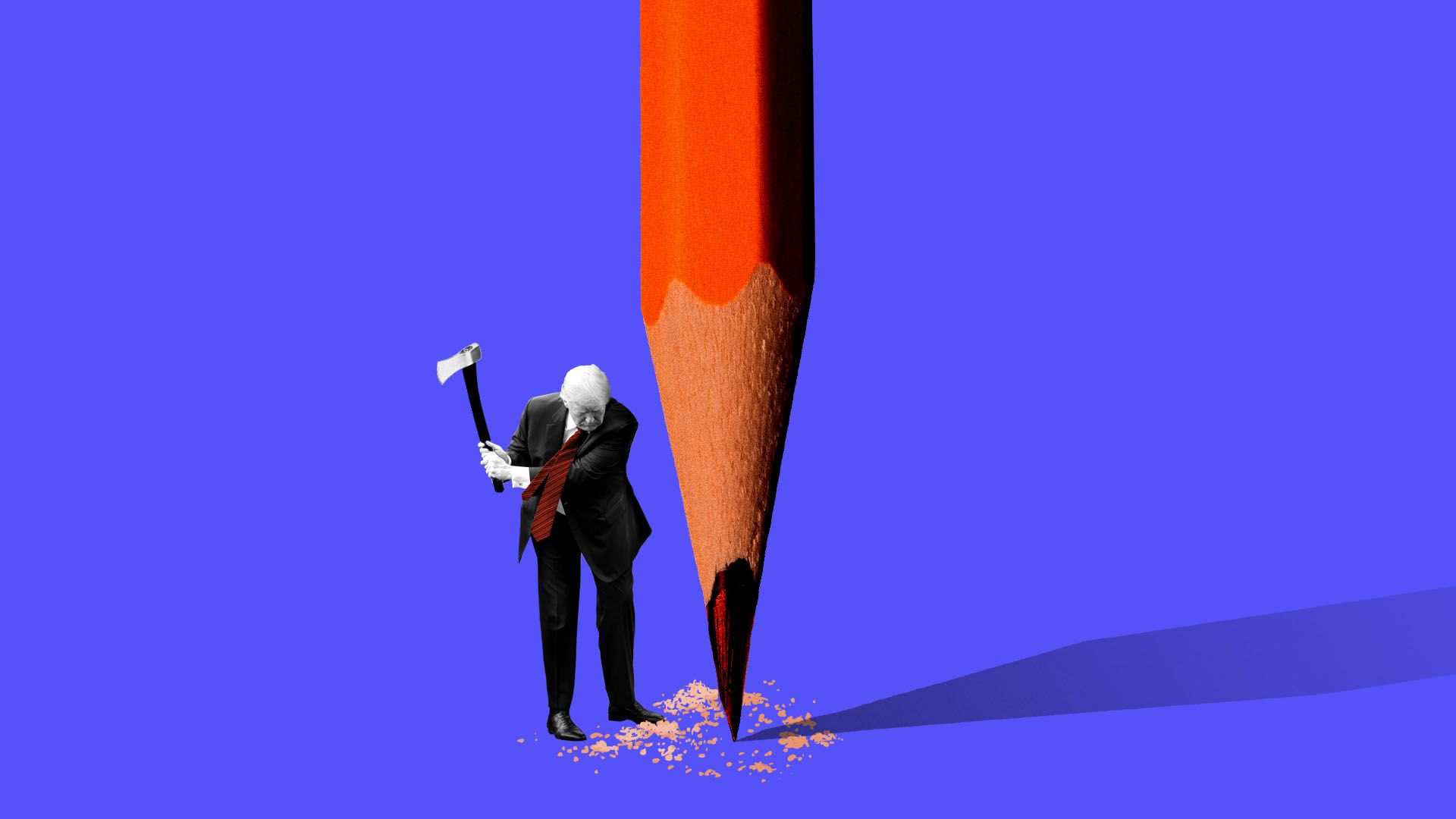Trump's unexpected 1st Amendment legacy
Add Axios as your preferred source to
see more of our stories on Google.

Illustration: Sarah Grillo/Axios
President Trump's consistent attacks on the free press and access to information, mostly through social media, have forced judges to re-evaluate the rules of political communications in the digital era.
Why it matters: Some of these actions have led to historic legal cases or set new precedents that could create stronger protections in the long term.
Blocking people on Twitter
Heading into the summer, First Amendment advocates are waiting for a ruling that will end a two-year-long debate over whether Trump, and other public officials, can block constituents on social media.
- In May 2018, the District court ruled that the president’s practice of blocking his critics on Twitter was unconstitutional. The government appealed that decision, and in March of this year, the Second Circuit Court of Appeals heard arguments in the case.
- The principle from the expected ruling can be applied to like-minded cases throughout the country.
- This means that any elected official — from a local mayor to the president — who blocks a constituent on Twitter could be found guilty of violating a person's First Amendment rights.
Deleting tweets
Shortly after Trump was elected, the National Archives and Records Administration (NARA) confirmed that tweets posted by Trump using his @realDonaldTrump handle are considered presidential records.
- That makes the White House legally responsible for saving deleted or altered tweets and submitting them to the Archivist of the United States upon leaving office.
- This provides more clarity for future presidents over whether their tweets must preserved as historical record.
Press credentials
Last year, a federal judge found that the White House's stripping of the security pass of CNN correspondent Jim Acosta was unconstitutional.
- The ruling establishes a principle that future administrations and other elected officials must provide a meaningful process and establish a real justification, such as a security threat or operational burden created by a reporter's actions, in order to revoke a press pass.
Be smart: In many of these cases, courts have had to figure out ways to apply decades- long principles to new mediums.
- "It's been very good to have clarity around which rules apply when government officials use a social media account," says Katie Fallow, senior staff attorney at the Knight Institute.
Yes, but: First Amendment advocates stress that despite these small wins, the president's rhetoric about the media being "the enemy of the people" and "fake news" is dangerous — and it provides cover for authoritarian regimes to threaten journalists around the world.
- "This response doesn't excuse Trump's unforgivable rhetoric denouncing free press traditions our country holds dear, and in particular his active encouragement of violence against journalists," says Joshua Geltzer, executive director of the Institute for Constitutional Advocacy and Protection at Georgetown Law Center.
- "But it does inspire hope that his actions are meeting powerful resistance by those who cherish our First Amendment and the press freedoms it protects."
The bottom line: "Overall, President Trump's relentless attacks on the free press and on government transparency have yielded strong pushback from a number of institutions ... the media itself, entities like NARA charged with preserving key records, and the federal courts," says Geltzer.
